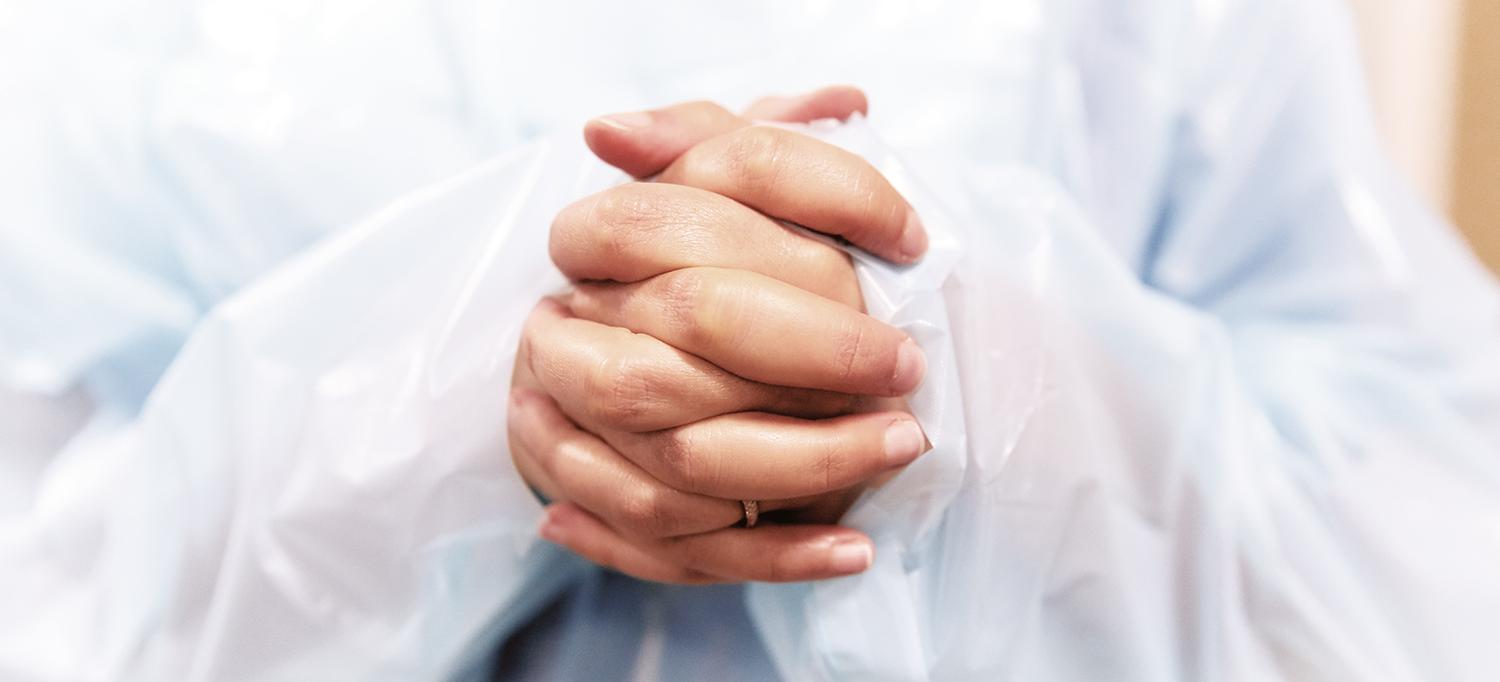Mental Health Resources, Launched During the Height of the Pandemic, Help NYU Langone Frontline Workers Deal with the Stress & Anxiety of a Crisis Like No Other

The COVID-19 crisis has disproportionately burdened frontline workers, which is why NYU Langone Health has implemented a series of innovative mental wellness programs to support its employees.
Photo: Jonathan Kozowyk
Coronavirus disease (COVID-19) has overtaxed not only the U.S. healthcare system, but also the frontline workers who show up every day to manage the crisis. They’ve seen colleagues fall ill with the virus and worried about their own wellbeing, along with the agonizing possibility of infecting loved ones. They’ve watched patients die, without family present, and felt powerless against a disease with no proven treatments. Staff who are parents have had to resolve childcare issues, serve as de facto teachers, and soothe their little ones’ fears. Given these challenges, the pandemic inevitably has taken a mental toll, leading to symptoms of depression and anxiety among many frontline staff.
“It’s overwhelming what they’ve gone through,” says Charles R. Marmar, MD, the Lucius N. Littauer Professor of Psychiatry and chair of the Department of Psychiatry at NYU Langone Health. “Seeking help when facing these conditions is understandable and not a sign of weakness.” To meet the emotional needs of workers, NYU Langone, now ranked number 11 nationally by U.S. News & World Report for psychiatry, launched a variety of mental health resources by the height of the crisis last spring. “The goal is to make sure people don’t feel alone—that there are easily accessible ways to get support,” says Helen L. Egger, MD, the Arnold Simon Professor of Child and Adolescent Psychiatry and chair of the Department of Child and Adolescent Psychiatry.
Those seeking self-help solutions can turn to the frontline healthcare worker Mental Health Resources internal employee website, built with the guidance of the Department of Child and Adolescent Psychiatry’s in-house digital innovation laboratory, called the WonderLab, and the Medical Center Information Technology team. The site provides stress management tips, meditation exercises, and a “coping card” that recommends calming breaks staff members can perform within a minute or less. Nearly 1,300 people visited on the first day.
Additionally, the site guides users on the path to join in-person and virtual support groups. These offer a safe space for faculty, nurses, residents, and staff to share thoughts and experiences in virtual meetings, with a mental health professional serving as a facilitator. “Many of our groups were created for existing teams that already knew each other and were going through the crisis together, and that made the forum a more powerful tool,” says Ron-Li Liaw, MD, chief of service for the Department of Child and Adolescent Psychiatry at Hassenfeld Children’s Hospital at NYU Langone. “We had 500 staff members join, many of whom had never sought help before.”
Another initiative rolled out during the spring surge involved more direct intervention: behavioral health nurses conducted rounds to check in on staff members stationed in COVID-19 intensive care units (ICU) and acute care units. “Frontline nurses really liked these sessions because they were talking to a peer,” says Dr. Marmar.
“People hold it together during a crisis,” says Helen L. Egger, MD, chair of the Department of Child and Adolescent Psychiatry. “When things calm down is often when you see symptoms rising.”
Frontline workers who require ongoing care can turn to the House Staff Mental Health Program, which provides no-cost video visits for residents, as well as counseling through the NYU Langone Employee Assistance Program, 24 hours a day, 7 days a week. As well, NYU Langone Psychiatry Associates and NYU Langone’s Child Study Center saw a 20 percent increase in visits once the pandemic hit. Much of the jump occurred in May, as the volume of patients with COVID-19 at the institution declined. “People hold it together during a crisis,” says Dr. Egger. “When things calm down is often when you see symptoms rising.”
Dr. Liaw, seeing a potential silver lining, hopes the increased recognition of the importance of mental health services decreases the stigma of pursuing them. As she observes, for some workers, the painful experiences, memories, and grief will far outlast the pandemic. “NYU Langone did an amazing job treating patients with COVID-19,” says Dr. Liaw, “and we need to do the same for the healthcare team that served them.”

